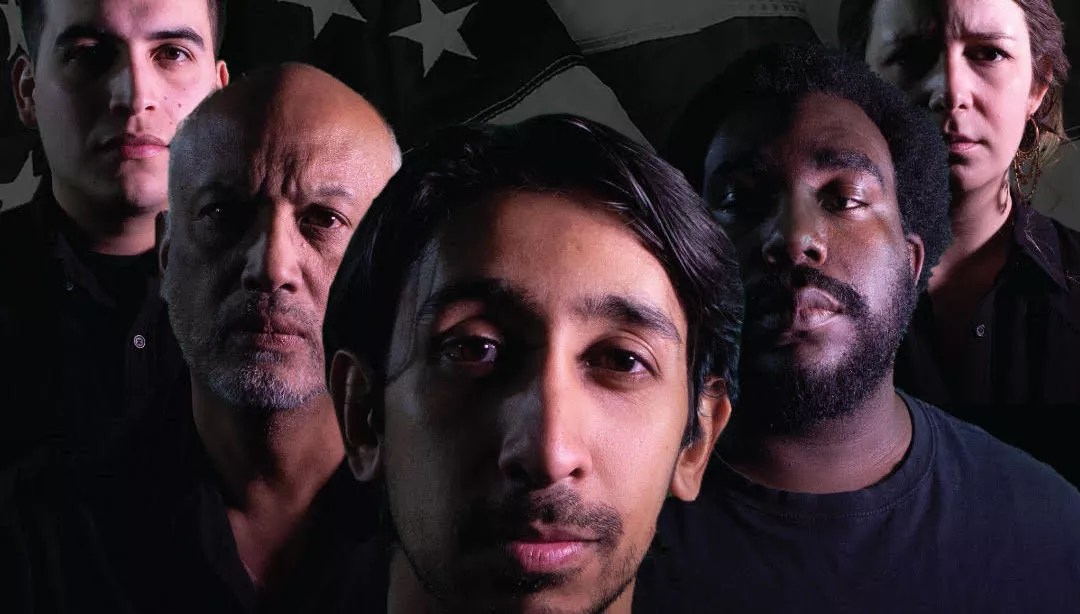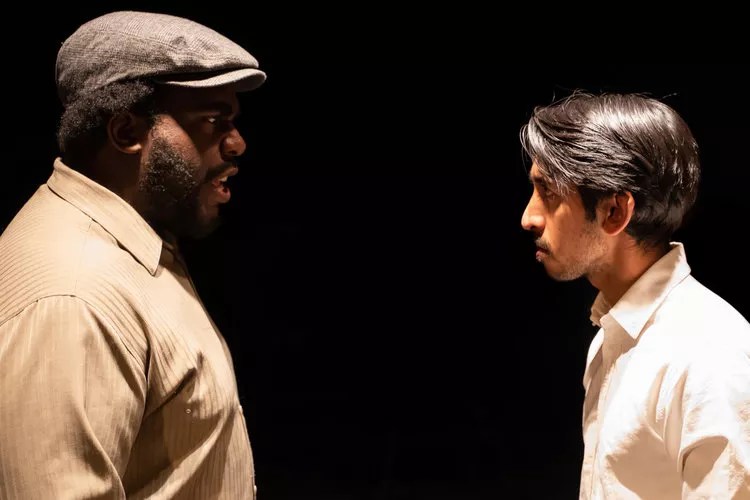
Courtesy of Black Actors Guild/Emancipation Theater Co.

Audio By Carbonatix
The tragic events of September 11, 2001, changed everything for actor and playwright Jihad Milhem, the son of a Palestinian Muslim from the West Bank and a white American mother. A native of Columbus, Ohio, he grew up with his mother as a non-practicing Muslim, but spent time learning the ropes of Muslim culture when visiting his father’s home after his parents divorced. After the terrorist attacks, which happened when he was thirteen, he found himself torn by his family’s cultural allegiances. As many in the United States turned against their Islamic neighbors, government surveillance of Muslims escalated, and people were rounded up and detained in unprecedented numbers, he and his family experienced Islamophobia and prejudice firsthand.
“My father dealt with hate crimes,” he explains. “He was once held at gunpoint while getting the mail at his apartment complex. They threw him in the back of a van, and it was dawn before they let him out.” His Arabic stepmother and her young daughters, who wore the hijab, were accosted at work and in public parking lots.
But the debate in lower Manhattan over building a mosque within blocks of Ground Zero is what inspired him to write Mosque, a family drama shaped by real-world events.
“In the summer of 2010, I was in Columbus, getting my ducks in a row to move to New York,” Milhem recalls. “I spent the night at my sister’s house – my older sister from my mom’s side, who is white – and she and her husband were against the Ground Zero mosque. It seemed to be all the cable news shows talked about – that was the zeitgeist – and I thought, ‘Why do I want to go to such an unaccepting place?'” Aspiring to have a career in theater, he took the leap anyway.
“To me, New York had always represented diversity and cultural acceptance,” Milhem explains. “That was one thing I loved about it. I could walk around Manhattan and hear five to ten languages in a day.” As he was observing the anti-Muslim sentiment sparked by the so-called Ground Zero mosque, the idea for his play Mosque took root.

Opposing sides face off in Mosque.
Courtesy of Black Actors Guild/Emancipation Theater Co.
Milhem eventually moved to Boulder when his wife enrolled at Naropa University, and he settled into an acting career that includes roles with the Colorado Shakespeare Festival, the Boulder Ensemble Theatre Company and other local groups.
In the meantime, Mosque was workshopped and presented in different forms, leading to a final version that will premiere on Sunday, May 19, at the People’s Building in Aurora.
The show is being co-produced by the Black Actors Guild and playwright/actor Jeff Campbell’s Emancipation Theater Co. Both groups have a commitment to reflecting diversity and the views of people of color to promote conversations about social issues, and Milhem’s play about a father and son at odds in the shadow of 9/11 felt like a good fit for the companies, especially in the multicultural community of downtown Aurora.
“So many people were against building this mosque in a city that has more mosques than most,” Milhem says, adding that seeing “a place be so torn apart over one issue” caused him to listen in on the conversations it generated and borrow from them. “It’s a story about a father and son with that as the backdrop, and the first part I wrote was an argument between two cabbies over the mosque. I wanted it to be about people first, and that’s where I flew with it.”
The playwright also wrote Mosque with the goal of opening up more roles for Arab-American actors like himself. “I’ve personally only played a Palestinian once, and I’ve never played a Palestinian-American in my life,” Milhem notes. And in a time when immigration and religious freedom are both under attack in the United States, he feels a duty to seek solutions through understanding.
“I wanted to talk about how this has become more and more relevant since I first wrote the play,” Milhem explains. “There was a rise in Islamophobic hate crimes when the mosque controversy was at a fever pitch, and now, since Trump ran on his xenophobic points, there have been clear spikes in anti-Muslim hate crimes, which have also singled out Sikhs, secular Arabs and even Latinos.
“The Arab-American experience is the American experience, and all anybody is trying to do is get through the day and love people they love,” Milhem continues. “Now I see that the heart of it is about a father and son and the makeshift family that surrounds them, and how the larger family we choose in the outside world can tear core families apart. Outside forces make people grow apart.” Learning to understand each other, he says, might help families get back together again.
Mosque opens at 7:30 p.m. Sunday, May 19, and runs for eight more performances through June 2 at the People’s Building, 9995 East Colfax Avenue in Aurora. Tickets are $15 in advance, $20 at the door; opening night doubles as a benefit for the Denver Actors Fund. Learn more online.